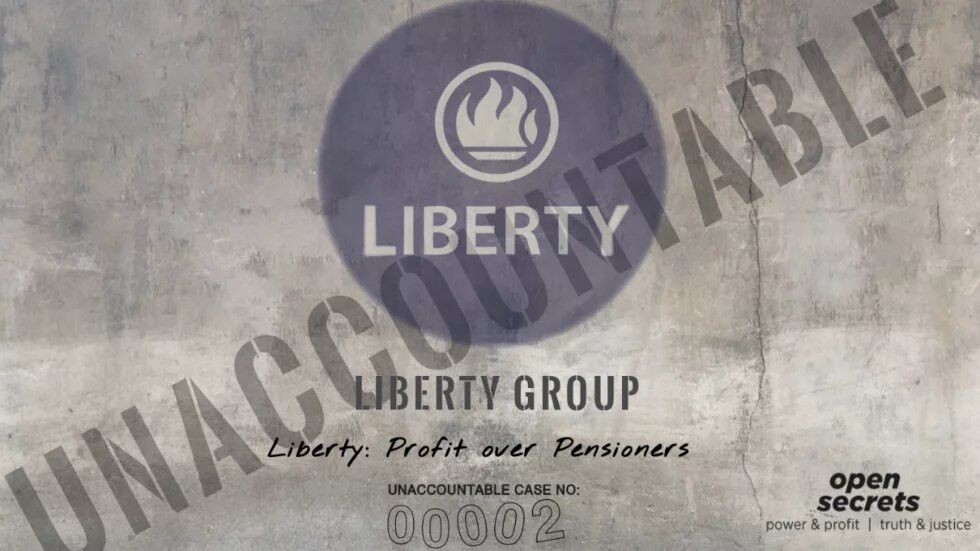See Part 1 in this series here: Dame Margaret Hodge MP – a very British apartheid profiteer

The four million people who are owed R40-billion in “unpaid benefits” include pensioners inside and outside South Africa, workers who have moved or lost their jobs, as well as children and spouses who are eligible for benefits. Many do not know that they are owed, how much they are owed and how to go about claiming their benefits. In a context of pervasive poverty and high inequality, it is unacceptable that private companies profit from the billions owed to vulnerable South Africans.
Liberty and the Cancellations Project
The “unpaid benefits” – legally owed to pensioners or fund members but still unpaid – are found in places such as pension funds, provident funds and insurance policies. The story of incorrectly cancelled pension funds is just one part of the broader scandal of unpaid benefits. But it is an important part of understanding the incestuous relationship between the regulator, who should act in the public interest, and financial service providers.
Between 2007 and 2013, the Financial Services Board (FSB) cancelled the registrations of 6,757 pension and provident funds. A KPMG investigation requested by the FSB found that 98% of the cancellations took place when the regulator had insufficient information to carry them out – making them unlawful. Often, the information that was submitted to the regulator – by private pension fund administrators like Liberty – was incorrect. This led to the cancellation of funds which still had assets and members to pay out. Insurance giant Liberty administered 80% of the cancelled funds and was a prime culprit in providing incorrect information that led to the cancellation of these funds.
Many actors in the pensions industry are implicated in contributing to this problem and failing to fulfil their legal duties. Liberty argues that the R100-million identified so far that they owe to members of funds that they had cancelled incorrectly is small compared to the industry-wide issue. While R100-million may be small fry to a billion-dollar company, it is not a small matter to the individual pension fund members who gave up a portion of their income for years, and yet have still not been paid their benefits. Moreover, the story of how pension funds were cancelled is emblematic of systemic problems in the industry.
Cancelling the registration of a pension fund means that it can no longer carry out its usual activities and fulfil its duties to members. Once cancelled, it cannot pay the fund members their pension benefits. For this reason, the law requires that the registrar have enough evidence in its possession to conclude that the fund no longer has any assets or members to pay before the fund is cancelled.
****

